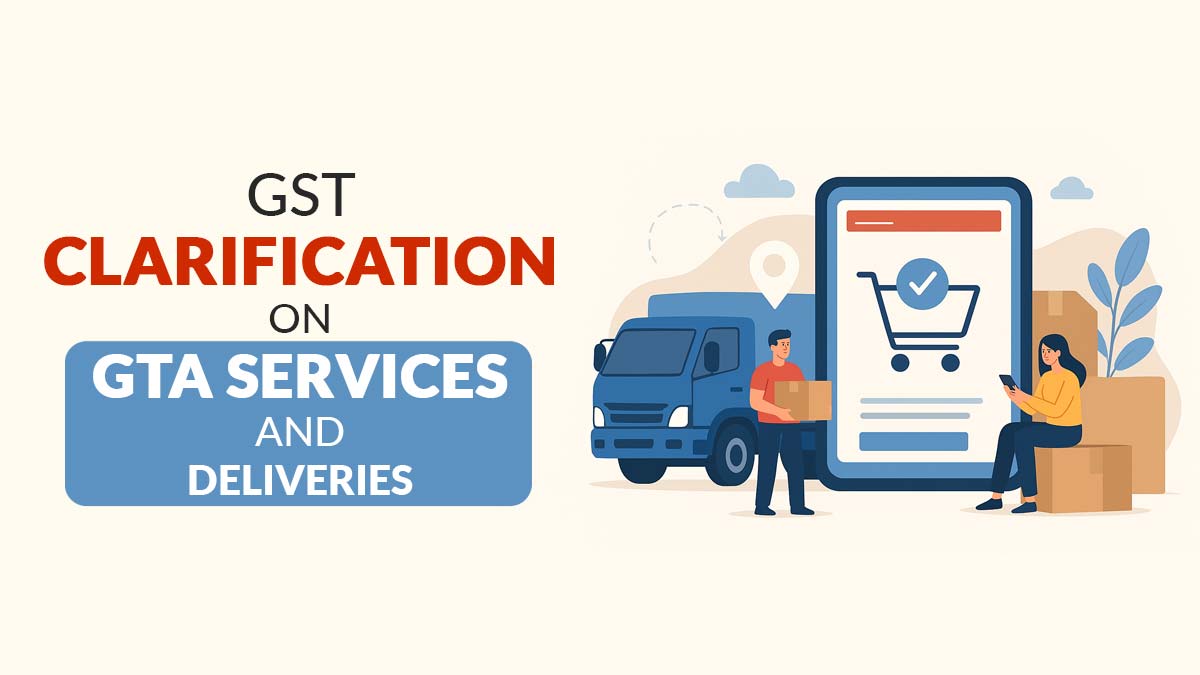
The Forum for Internet Retailers, Sellers & Traders (FIRST India), an association representing more than 300 online platforms focused on micro, small, and medium enterprises (MSMEs), has reached out to Finance Minister Nirmala Sitharaman for clarification on the Goods and Services Tax (GST) regulations.
Their communication highlights concerns surrounding the ambiguity in classifying intra-state and short-distance deliveries. Specifically, they seek guidance on whether these types of deliveries should be categorised as Goods Transport Agency (GTA) services or fall under the newly established category of local delivery services.
The caution has been given for the unclear GST liability risks, operational disruptions, compliance challenges, and potential double taxation, asking the ministry for guidance towards uniform treatment and safeguarding small sellers’ participation in India’s digital retail ecosystem.
These revisions have led to confusion among transporters, aggregators, and e-commerce operators about the applicable tax rates, whether the tax should be paid under reverse charge or forward charge, and their compliance obligations under the updated provisions.
This concern was highlighted in a letter sent by Sushma Morthania, Director General of the India SME Forum–FIRST India, to the Finance Minister, a copy of which was reviewed by Business Standard.
There are two models on which the Indian e-commerce delivery ecosystem has relied for a long time. E-commerce companies engage multiple delivery partners, recover charges from sellers, and pass them to customers through invoices within platform-managed logistics.
In the direct logistics model, providers bill customers directly and issue consignment notes, categorising themselves as Goods Transport Agencies (GTA) under the GST law. From the recent revisions, ambiguity towards the way such services must be taxed, specifically, intra-state for short-distance deliveries.
E-commerce operators under the amended Section 9(5) of the CGST Act, should now pay 18% GST on local delivery services, unless the provider is separately accountable u/s 22(1). The amendment has created ambiguity while aiming to ease tax collection and curb misuse of exemptions.
It is not clear to the companies whether short-distance or intra-city deliveries, along with consignment notes or warehouse transfers, must be considered Goods Transport Agency services or local deliveries subject to Section 9(5).
Read Also: CBIC Clarifies 18% GST on Local Delivery Services Effective Sept 22, 2025
Compliance risks, operational disruptions, and administrative confusion have emerged from the uncertainty. It is unclear for the companies which among the ecommerce operators, logistics partners, or sellers are required to pay the GST, and this has raised the risk of double taxation and inconsistent invoicing.
Differing interpretations by tax officials have led to the threat of litigation and retrospective demands. Logistics providers and e-commerce platforms are pressing for clarification to ensure consistent compliance and avoid unintended penalties.
Concerning GST rules for local delivery and Goods Transport Agency (GTA) services, Forum for Internet Retailers, Sellers & Traders (FIRST India) asked for clarity. Questions: the definition of “local delivery”, the scope of the GTA B2C exemption, and whether intra-state GTA services via platforms are taxable at 18 per cent under Section 9(5).
Uncertainty is hindering compliance, driving operational inefficiencies, raising costs, and risking litigation, stakeholders expressed. They ask for a phased introduction to permit businesses to adjust the contracts and billing systems without any disruptions.
“We respectfully urge the Ministry of Finance and TRU to issue official clarification or a circular on the above aspects. This will enable consistent application of GST law across all stakeholders”, the letter stated.









